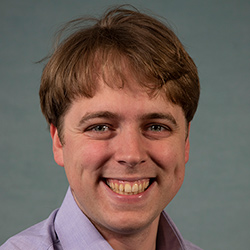
After completing core medical training in Manchester, Dr Darlow took up an Academic Clinical Fellowship in 2015 in Oxford where, alongside starting his Infectious Diseases speciality training, he worked at the Oxford Vaccine Group of the University of Oxford.Here, he worked with a variety of Typhoid Controlled Human Infection Models to help assess novel vaccine efficacy, develop understanding of the pathological mechanisms of typhoid, and explore potential new diagnostic modalities.
Continuing his Infectious Diseases training in Manchester from 2017, Christopher took up an MRC Clinical Pharmacology PhD post in October 2018 with Prof William Hope at the University of Liverpool with the aim of determining a new antimicrobial regimen for neonatal sepsis in the context of rising antimicrobial resistance.
Determining the optimal combination and dose of antimicrobials for neonatal sepsis in the context of antimicrobial resistance
Antibiotics underpin all modern medicine. Without them, surgery, transplantation and chemotherapy would not be possible, and death from trivial infections would once again become the norm. However, antibiotic resistance is increasingly seen. Some bacteria have developed resistance to almost all antibiotics including carbapenems, which are a last resort for treatment of infections caused by multi-drug resistant bacteria. These bacteria are causing serious infections, particularly in less developed parts of the world. Such infections are affecting new-born babies, with many dying.
To combat these infections, there is renewed interest in older antibiotics that may still be effective against drug resistant bacteria. Unfortunately, we do not have the information to use the best dose of these antibiotics in new-born babies, since most studies have only been performed in adults. Additionally, we do not know which antibiotics are best, or if using them in combination will be better.
To help answer these questions I will be using state-of-the-art laboratory and mathematical modelling techniques to predict which antibiotics are best to use for infections caused by these bacteria in new-borns, and which doses to give them. This will help allow effective treatment for these infections that are causing many unnecessary deaths.
Working with Industy
Dr Darlow is working with Roche and he says:
“During my MRC fellowship I have had regular monthly meetings with my PhD industry supervisor (Dr Richard Peck at Roche) who has provided additional guidance and insight into University experimental work from an experienced industry clinical pharmacologist viewpoint. We have planned for an industry placement in which I will utilise Roche’s local physiology-based pharmacokinetic modelling (PBPK) expertise and in vitro assay availability to construct a PBPK model modelling antibiotics of interest in neonates. For myself, the project would not be possible utilising local University resources and expertise. For Roche, the project will develop neonatal PBPK models to enhance capability in application for other drugs in a neonatal context.”
Back to: North West England MRC Fellowship Scheme in Clinical Pharmacology and Therapeutics